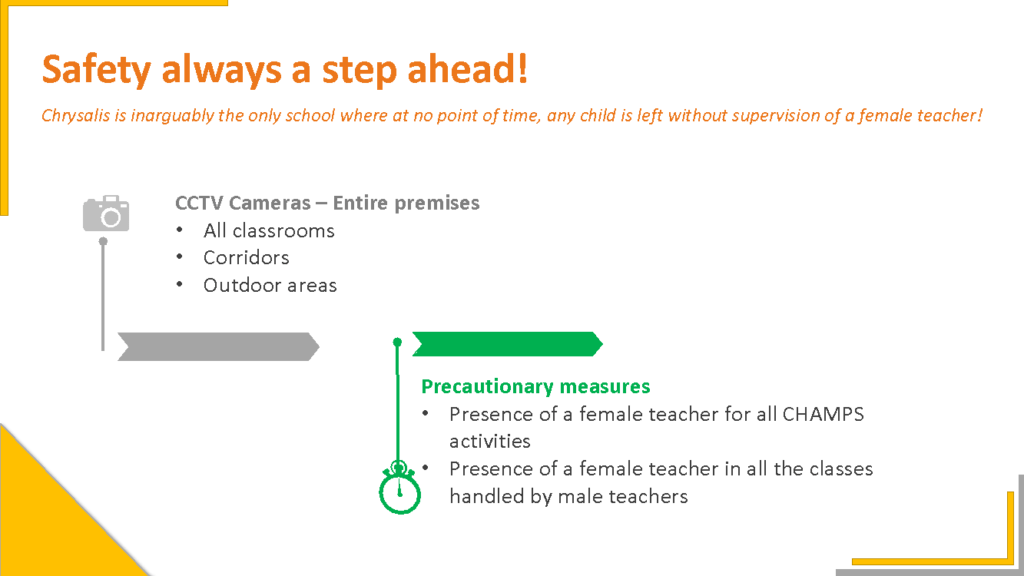Choosing between CBSE and ICSE is an important decision for your child’s education. Here’s a brief overview of the pros and cons of each board to help you make an informed choice:

CBSE:
Pros:
- Nationally recognized: CBSE is widely accepted and used across India.
- Easier transition: It’s easier for students to move between CBSE-affiliated schools due to a consistent curriculum.
- Focus on competitive exams: CBSE prepares students for various competitive exams like JEE and NEET.
Cons:
- Limited detailed knowledge: Some argue that CBSE provides less in-depth knowledge compared to ICSE.
- Rote learning: It is often criticized for promoting rote learning and memorization.
ICSE:
Pros:
- In-depth curriculum: ICSE offers a comprehensive and detailed curriculum, providing a deeper understanding of subjects.
- Emphasis on English: ICSE promotes proficiency in the English language.
- Critical thinking: ICSE encourages critical thinking and problem-solving skills.
Cons:
- More challenging: The syllabus is considered more challenging, which can be stressful for some students.
- Limited availability: ICSE schools are fewer in number, limiting options in some regions.
Factors to Consider:
- Your Child’s Learning Style: Consider your child’s learning preferences, whether they succeed in a more structured or comprehensive educational environment.
- Future Goals: Your child’s career aspirations and the importance of competitive exams should guide your choice.
- Location: The availability of CBSE and ICSE schools in your area is crucial.
What is the CBSE Board?
The Central Board of Secondary Education, commonly known as CBSE, is the central governing body for secondary and higher secondary education in India. It is one of the most recognized general education boards in the country, catering to a vast number of students across various states.
Formation and History:
Under the guidance of the Indian Union Government, CBSE was founded in 1962. Its primary purpose was to standardise and regulate the education system in the country and ensure quality education for all. Over the years, it has evolved to meet the changing educational needs of the nation.
Role in the Indian Education System:
CBSE plays a key role in the Indian education system. It sets the curriculum, conducts examinations, and evaluates students’ performance for secondary (Class 10) and higher secondary (Class 12) education. The board’s curriculum is designed to be in alignment with the National Curriculum Framework (NCF) and focuses on providing a holistic education.
Types of Schools Affiliated with CBSE:
CBSE is associated with a diverse range of schools across India. This includes government schools, private schools, Kendriya Vidyalayas (central government schools), Jawahar Navodaya Vidyalayas (rural schools), and numerous independent public and private institutions. The board’s wide network ensures that students from all backgrounds have access to quality education by CBSE school .
What is the ICSE Board?
The Indian Certificate of Secondary Education (ICSE) is an education board in India, realised for its comprehensive and detailed curriculum. It aims to provide a well-rounded education to students, emphasising critical thinking, analytical skills, and English language proficiency.
Formation and History:
The ICSE board was established in 1958 by the Council for the Indian School Certificate Examinations (CISCE), a private, non-governmental body. The board was created to offer an alternative to the existing education systems in India by providing a more comprehensive and in-depth curriculum.
Role in the Indian Education System:
ICSE plays a significant role in the Indian education system by offering a curriculum that focuses on a broader range of subjects and encourages students to develop a deeper understanding of each subject. The board’s focus on critical thinking and analytical skills is designed to provide students with a well-rounded education.
Types of Schools Affiliated with ICSE:
The ICSE-affiliated schools can be found across India, and they encompass a variety of institutions, including private schools, missionary schools, and independent public schools. These schools typically follow the ICSE curriculum and offer a diverse range of subjects, including a strong focus on English language proficiency.
ICSE vs CBSE: Pedagogy
CBSE Pedagogy:
The pedagogy of CBSE, the Central Board of Secondary Education, generally follows a more standardised and structured approach. The board focuses on fostering a strong foundation of core subjects, including mathematics and science. CBSE often employs textbooks that are in alignment with the National Curriculum Framework (NCF), emphasising conceptual learning.
Unique Teaching Methodologies in CBSE:
- Problem-Solving Emphasis: The CBSE encourages problem-solving skills by incorporating practical application and analytical thinking.
- Continuous and Comprehensive Evaluation (CCE): CBSE has introduced the CCE system, which considers students’ performance throughout the year and not just at the end of a term. This method aims to reduce stress and promote full development.
ICSE Pedagogy:
The pedagogy of ICSE, the Indian Certificate of Secondary Education, focuses on a more comprehensive and detailed approach to education. ICSE schools aim to provide a deeper understanding of subjects and critical thinking skills. The curriculum encompasses a broader range of subjects, including languages, arts, and social sciences.
Unique Teaching Methodologies in ICSE:
- In-Depth Curriculum: ICSE includes a detailed curriculum that encourages a thorough exploration of subjects, promoting a deep understanding and knowledge.
- Focus on English Language: ICSE schools typically emphasise English language proficiency, to improve students’ communication skills.
- Project-Based Learning: ICSE often includes project-based learning as a way to encourage the practical application of knowledge and independent research.
CBSE vs ICSE syllabus which is better and why?
The CBSE or ICSE syllabus is better depending on individual preferences and learning styles. Both boards have their unique strengths and cater to different educational needs.
CBSE Syllabus:
CBSE offers a standardised and structured curriculum that focuses on core subjects and is often considered more straightforward than ICSE. It is well-suited for students aiming to appear for national-level competitive exams. The CBSE syllabus typically emphasises conceptual understanding and problem-solving. However, some experts argue that it may lack the depth and detail found in the ICSE curriculum.
ICSE Syllabus:
The ICSE syllabus is known for its comprehensive and detailed approach. It covers a broader range of subjects and encourages students to develop a deeper understanding of each topic. This board is suitable for students who prefer a more holistic education and want to enhance their critical thinking and analytical skills. However, the ICSE syllabus is often scented as more challenging due to its depth and breadth.
Scholarships
CBSE Scholarships:
CBSE offers a range of scholarships to support students in their academic goals. Unique scholarships include the CBSE Merit Scholarship Scheme for single girl children, financial support for students achieving high scores in board exams, and various central government scholarships. The eligibility criteria typically involve academic excellence and may have specific requirements like single-girl child status. Application processes are usually through schools, with applications submitted to CBSE authorities.
ICSE Scholarships:
ICSE scholarships vary and can be provided by private institutions and NGOs, emphasising both academic merit and financial need. These scholarships aim to encourage and support students in their educational journey. Application processes for ICSE scholarships differ based on the scholarship provider, and students often apply directly to the respective scholarship sources or through their schools.
CBSE scholarships
The specific CBSE scholarships include the CBSE Merit Scholarship Scheme for single girl children, offering financial aid to top-performing female students. The eligibility criteria typically involve securing top ranks in CBSE examinations. Hence, the application processes involve submission through the respective schools to the CBSE authorities.
ICSE scholarships
The ICSE scholarships vary widely, with some offered by private institutions and NGOs. These scholarships often consider academic excellence, financial need, and specific criteria set by the scholarship providers. Hence, the application processes differ based on the scholarship, and students typically apply directly to the respective scholarship providers or through their schools.
ICSE vs CBSE: Instruction of Medium
The CBSE mostly uses English as the medium of instruction, making it more suitable for students comfortable with this language. In contrast, ICSE schools offer a broader choice of languages, including English and regional languages, giving students more language flexibility.
ICSE vs CBSE: Ease of Board Transfer
The transfer between CBSE and ICSE boards can be challenging due to differences in curriculum and pedagogy. Students should consider the potential trouble in their education when changing boards and evaluate if the new board aligns with their learning style.
ICSE vs CBSE: Which Board has Competitive edge
The choice between CBSE and ICSE doesn’t naturally provide a competitive edge but depends on individual goals. CBSE may align better with national exams, while ICSE emphasises a total education, possibly enhancing critical thinking for future college admissions and career prospects. It ultimately depends on the student’s aspirations and preferences.
Difference in Grading Systems
ICSE and CBSE employ different grading systems. ICSE uses a letter grading system, while CBSE uses a numerical system. ICSE’s grading system includes letter grades from A to E, focusing on qualitative assessment. In difference, CBSE uses numerical scores, with 10 being the highest.
ICSE Grading System
ICSE’s grading system assigns letter grades, with A being the highest and E the lowest. It highlights qualitative assessment, providing a more clarifying evaluation of a student’s performance.
CBSE Grading System
CBSE uses a numerical grading system, with scores ranging from 0 to 100. It provides a more quantitative assessment of a student’s performance, often with a passing grade of 33% or more.
ICSE vs CBSE: Difference in Exam Pattern
The examination patterns of ICSE and CBSE differ significantly. ICSE exams are known for their in-depth and comprehensive approach, containing various subjects. ICSE often includes more clarifying and analytical questions, promoting critical thinking. In contrast, CBSE exams generally follow a more structured format with a focus on core subjects and often include a mix of objective and subjective questions.
ICSE vs CBSE: Which is challenging for students?
ICSE is often sensed as more challenging due to its detailed curriculum, complete syllabus, and strict examination pattern. It demands a deeper understanding of subjects and encourages critical thinking, making it more academically demanding than CBSE.
ICSE vs CBSE: Availability of Tutors and Schools
The availability of tutors and schools affiliated with ICSE and CBSE can vary by region. The CBSE schools are widespread, making them more available in many areas. ICSE schools are comparatively fewer in number but can still be found in urban and semi-urban regions. The availability of tutors for both boards generally depends on the local demand for each curriculum.
ICSE vs CBSE Pros and Cons
This section provides an insightful examination of the advantages and disadvantages of the ICSE and CBSE education systems in India. It offers a comprehensive overview of the strengths and weaknesses of each board, helping parents, students, and educators in making informed decisions about their preferred curriculum. By evaluating the unique merits and potential drawbacks, individuals can better align their choices with their educational aspirations and learning styles.
CBSE Pros:
- National Recognition: CBSE is widely recognized and accepted across India, ensuring a smooth transition for students moving across regions.
- Focus on Competitive Exams: CBSE’s structured curriculum aligns well with competitive exams like JEE and NEET, making it ideal for aspiring engineers and medical professionals.
- Standardised Curriculum: The board provides a standardised curriculum, emphasising core subjects such as Mathematics and Science.
CBSE Cons:
- Lack of Depth: Critics argue that the CBSE curriculum may lack depth compared to ICSE, affecting the depth of knowledge in subjects.
- Rote Learning: The system is sometimes criticized for promoting rote memorization and a focus on exams over practical learning.
ICSE Pros:
- Comprehensive Curriculum: ICSE offers a detailed and comprehensive curriculum, promoting a deeper understanding of subjects and critical thinking.
- Holistic Approach: It encourages a well-rounded education, incorporating a broad range of subjects, including languages, arts, and social sciences.
- English Proficiency: ICSE schools often focus on English language proficiency, a valuable skill in various career fields.
ICSE Cons:
- Challenging: ICSE is typically considered more challenging due to its detailed curriculum, demanding greater effort and time from students.
- Variability: The syllabus can vary between ICSE-affiliated schools, making it challenging for students who need to transfer between different institutions.
ICSE vs CBSE which is better for a child’s future
The choice between ICSE and CBSE for a child’s future depends on several factors. Parents should consider the following:
ICSE:
- Ideal for holistic development, emphasising critical thinking and communication skills.
- Suitable if the child has a strong talent for analytical and research-based learning.
- Beneficial if they plan to follow fields demanding a deep understanding of subjects.
CBSE:
- Appropriate if the family expects frequent relocations, as CBSE is widely recognized.
- Well-suited for competitive exams and national-level tests, with a structured curriculum.
- Easier transition between CBSE schools, ensuring continuity in education.
Conclusion
In conclusion, there is no final answer to whether ICSE or CBSE is better, as the choice depends on individual circumstances and preferences. Both boards have their unique advantages and disadvantages, and what matters most is aligning the choice with the child’s learning style, career goals, and local availability. Parents must make an informed decision that supports their child’s overall development and academic success. Finally, the key is to choose the board that aligns best with the child’s strengths and aspirations, setting them on a path to a successful future.
FAQ’s
1. How many education boards in India?
There are multiple education boards in India, including CBSE, ICSE, state boards, and more.
2. Which education board is best in India?
The choice of the best education board in India depends on individual preferences and academic goals.
3. Is physical education compulsory on the CBSE board?
Physical education is a compulsory subject in CBSE schools up to the secondary level (Class 10).


